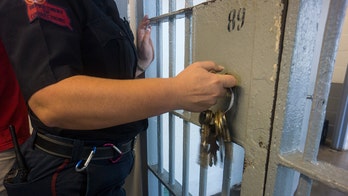Former Harvard law professor Alan Dershowitz accuses the media of spreading false narratives about the trial of Donald Trump, emphasizing the importance of televised trials for ensuring fairness and accuracy in reporting.

Renowned attorney and Harvard law professor, Alan Dershowitz, has launched a scathing attack on the media, accusing it of spreading false narratives about the ongoing trial of former President Donald Trump. Dershowitz, who witnessed the trial firsthand, paints a disturbing picture of biased reporting and media manipulation that undermines the public's trust in the justice system.

"I have observed and participated in trials throughout the world," says Dershowitz, highlighting his extensive experience in the legal field. "But in my 60 years as a lawyer and law professor, I have never seen a spectacle such as the one I observed sitting in the front row of the courthouse yesterday."
Dershowitz accuses the judge in Trump's trial of bias against the defense, citing instances of selective rulings that favored the prosecution. He also decries the judge's unprecedented threat to strike testimony from the defense's only substantive witness, a move that would have jeopardized Trump's constitutional rights.

"The judge's affect while issuing that unconstitutional threat revealed his utter contempt for the defense and anyone who testified for the defendant," Dershowitz asserts.
The absence of televised proceedings, Dershowitz argues, has allowed the media to spin the narrative, distorting reality and shaping public perception. He points to an incident where he engaged in a friendly conversation with a former student who works as a CNN legal analyst, but was falsely portrayed as having a spat with him.

"They claimed that I had a spat with my nemesis, rather than a friendly conversation with a former student," says Dershowitz. "Their account was made up, yet it was circulated through the media."
Dershowitz emphasizes the importance of televised trials, arguing that it ensures transparency and accountability in the justice system. "Allowing the public to see their courts in action is the best guarantee of fairness," he says, citing the wisdom of Justice Louis Brandeis's adage: "Sunlight is the best disinfectant."
"When I was a kid growing up in Brooklyn, we used to listen to the colorful account of Dodger games rendered by Red Barber on the radio," Dershowitz recalls. "But once television came along and everyone could watch the games live, the accounts became far more accurate, because we could see everything for ourselves."
The lack of televised proceedings, Dershowitz warns, can lead to unchecked partisan reporting, exaggerations, and personal opinions that misrepresent the true nature of the trial.
"The American public is the loser," Dershowitz concludes. "Without televised trials, we are deprived of the opportunity to witness the administration of justice firsthand and to hold our leaders accountable for their actions."
Dershowitz's allegations raise serious concerns about the integrity of media reporting and the potential for manipulated narratives to influence public opinion. It underscores the need for transparent and unbiased reporting in court proceedings, especially in high-profile cases with significant public interest.










